May 17 stands as one of history’s most eventful days, witnessing the rise and fall of empires, groundbreaking discoveries, and moments that shaped our modern world across centuries of human achievement.

Politics and Government Events on May 17
1954 – Brown v. Board of Education Supreme Court Decision
The United States Supreme Court delivered a unanimous decision in Brown v. Board of Education of Topeka, Kansas, fundamentally transforming American society. The landmark ruling declared racial segregation in public schools unconstitutional under the Equal Protection Clause.
This historic decision overturned the “separate but equal” doctrine established in Plessy v. Ferguson. The court’s ruling became a cornerstone of the civil rights movement and paved the way for broader desegregation efforts across the nation.
1973 – Watergate Hearings Begin
The Senate Watergate Committee commenced televised hearings that would captivate the American public for months. These proceedings brought unprecedented transparency to the investigation of political corruption at the highest levels of government.
Millions of Americans watched as senators questioned witnesses about the break-in and subsequent cover-up. The hearings ultimately contributed to President Nixon’s resignation and forever changed public expectations of governmental accountability.
1980 – Chun Doo-hwan Seizes Power in South Korea
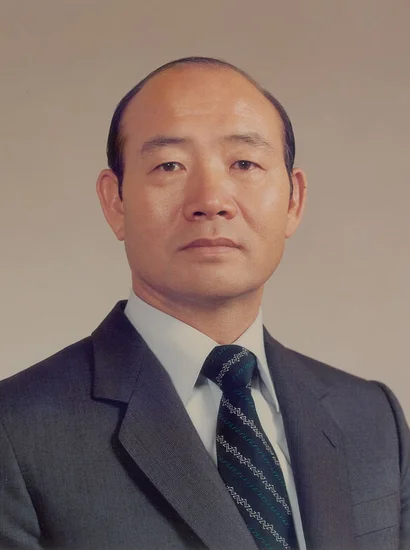
General Chun Doo-hwan orchestrated a military coup in South Korea, seizing control of the government and declaring martial law. His actions aimed to suppress growing student demonstrations demanding democratic reforms throughout the country.
The military takeover marked a dark period in South Korean history, leading to widespread human rights violations. Chun’s authoritarian rule would persist for nearly a decade before democratic movements finally succeeded in the late 1980s.
1997 – Laurent Kabila Marches into Kinshasa
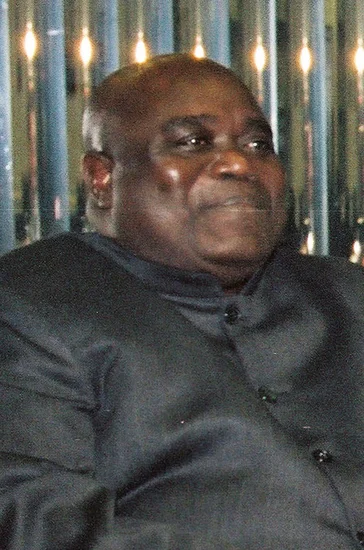
Troops loyal to Laurent-Désiré Kabila entered Kinshasa, effectively ending Mobutu Sese Seko’s decades-long dictatorship. The successful military campaign culminated months of civil war across the vast Central African nation.
Kabila’s forces immediately renamed the country from Zaire to the Democratic Republic of the Congo. This transition marked the end of one of Africa’s most notorious kleptocratic regimes and promised hope for democratic governance.
1914 – Protocol of Corfu Signed
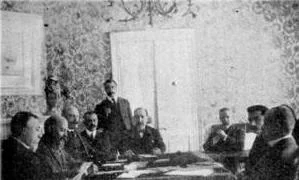
The Protocol of Corfu established full autonomy for Northern Epirus under nominal Albanian sovereignty. This diplomatic agreement attempted to resolve complex territorial disputes in the volatile Balkan region.
The protocol represented a compromise between competing Greek and Albanian claims to the region. However, the arrangement proved temporary as World War I soon engulfed the entire Balkan Peninsula.
1983 – Lebanon Withdrawal Agreement
Lebanon, Israel, and the United States signed a historic agreement addressing Israeli withdrawal from Lebanese territory. The complex negotiations involved multiple parties seeking to restore stability to the war-torn region.
The agreement attempted to balance Israeli security concerns with Lebanese sovereignty rights. However, the fragile diplomatic framework would soon collapse under pressure from regional opposition forces.
1992 – Thailand Protests Begin

Three days of massive protests erupted in Bangkok against Prime Minister Suchinda Kraprayoon’s government. Hundreds of thousands of citizens demanded democratic reforms and the resignation of the military-backed administration.
The demonstrations would escalate into violent confrontations with security forces, resulting in dozens of deaths. These events, known as Black May, ultimately forced Suchinda’s resignation and advanced Thailand’s democratic transition.
1994 – Malawi’s First Multi-Party Elections
Malawi conducted its first multi-party elections, ending three decades of one-party rule under Hastings Banda. Millions of citizens participated in this historic democratic transition across the southeastern African nation.
The elections marked a peaceful end to authoritarian governance and established Malawi as a beacon of democratic progress in the region. International observers praised the conduct of the voting process and the peaceful transfer of power.
Military and Naval History on May 17
1940 – Germany Occupies Brussels
German forces entered Brussels during their lightning advance through Western Europe in World War II. The occupation of Belgium’s capital represented a crucial victory in the Nazi blitzkrieg campaign against Allied forces.
Belgian resistance crumbled under the overwhelming German assault, forcing the government into exile. The fall of Brussels opened the path to France and brought German forces dangerously close to British positions.
1943 – Dambusters Raid Commences
No. 617 Squadron RAF launched Operation Chastise, the famous Dambusters raid against German dams in the Ruhr Valley. Nineteen specially modified Lancaster bombers carried revolutionary bouncing bombs designed by Barnes Wallis.
The daring low-level night attack successfully breached the Möhne and Edersee dams, flooding industrial areas below. Eight aircraft were lost in the mission, but the raid demonstrated British ingenuity and boosted wartime morale significantly.
1987 – USS Stark Attacked by Iraqi Fighter
An Iraqi Dassault Mirage F1 fighter jet fired two Exocet missiles at the USS Stark during the Iran-Iraq War. The attack killed 37 American sailors and wounded 21 others aboard the guided missile frigate.
Iraq claimed the attack was accidental, mistaking the American warship for an Iranian vessel. The incident heightened tensions in the Persian Gulf and demonstrated the dangers facing neutral vessels in the conflict zone.
1974 – Symbionese Liberation Army Raid
Los Angeles police conducted a massive raid on the Symbionese Liberation Army’s hideout, resulting in a deadly shootout. Six SLA members died in the confrontation, including Camilla Hall, effectively ending the radical group’s activities.
The raid was broadcast live on television, showing the dramatic finale of the organization that had kidnapped Patty Hearst. The violent confrontation marked the end of one of America’s most notorious domestic terrorist groups.
1974 – Dublin and Monaghan Bombings
The Ulster Volunteer Force detonated four car bombs in Dublin and Monaghan, killing 33 civilians and injuring over 300 others. The coordinated attacks represented the deadliest single day of violence during The Troubles.
The bombings shocked both Irish and British governments with their scale and brutality. The attacks occurred without warning, targeting innocent civilians in busy commercial areas during rush hour.
Science and Discovery Milestones on May 17
1902 – Antikythera Mechanism Discovered
Greek archaeologist Valerios Stais discovered the Antikythera mechanism, an ancient mechanical analog computer dating to approximately 100 BCE. This extraordinary device revolutionized understanding of ancient Greek technological capabilities and scientific knowledge.
The complex bronze mechanism contained intricate gear systems designed to predict astronomical positions and eclipses. Its discovery challenged assumptions about ancient technology and demonstrated sophisticated mathematical and engineering skills previously unknown from antiquity.
1969 – Venera 6 Descends to Venus
Soviet spacecraft Venera 6 began its descent through Venus’s atmosphere, transmitting valuable atmospheric data before succumbing to crushing pressure. The mission provided crucial information about the planet’s hostile environment and atmospheric composition.
The probe survived for 51 minutes while descending through the dense Venusian atmosphere, sending back temperature and pressure readings. This data helped scientists understand Venus’s extreme greenhouse effect and provided insights for future planetary exploration missions.
1983 – Mercury Pollution Declassified
The U.S. Department of Energy declassified documents revealing the world’s largest mercury pollution event in Oak Ridge, Tennessee. The revelation exposed 4.2 million pounds of mercury contamination, shocking environmental scientists and local communities.
The disclosure came in response to a Freedom of Information Act request from the Appalachian Observer newspaper. The contamination had occurred over decades of nuclear weapons production, highlighting environmental costs of Cold War military programs.
1922 – World Health Organization Removes Homosexuality
The World Health Organization’s General Assembly voted to eliminate homosexuality from its official list of psychiatric diseases. This landmark decision represented a major victory for LGBTQ+ rights activists worldwide and marked a significant shift in medical understanding.
The decision reflected growing scientific consensus that homosexuality was a natural variation of human sexuality, not a mental disorder. This change influenced medical practices globally and contributed to broader social acceptance of LGBTQ+ individuals.
Cultural and Arts Events on May 17
1984 – Prince Charles Criticizes Architecture
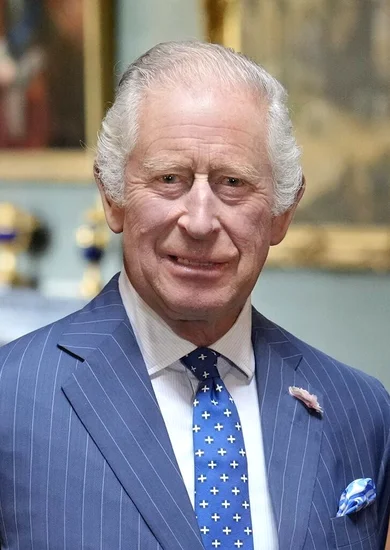
Prince Charles delivered his famous critique of modern architecture, calling a proposed National Gallery extension “a monstrous carbuncle on the face of a much-loved and elegant friend.” His comments sparked nationwide debate about architectural aesthetics and royal influence.
The prince’s intervention generated controversy about the monarchy’s role in cultural matters and architectural criticism. His remarks ultimately led to the rejection of the modernist design and adoption of a more traditional classical approach.
1939 – First Televised Sporting Event
Columbia Lions faced Princeton Tigers in America’s first televised sporting event, a collegiate baseball game broadcast from New York City. This historic transmission marked the beginning of sports television’s revolutionary impact on American entertainment.
The experimental broadcast reached only a few hundred television sets in the New York area. However, this pioneering effort established the foundation for sports broadcasting that would eventually transform both athletics and television industries.
1977 – First Chuck E. Cheese Opens

Nolan Bushnell opened the first Chuck E. Cheese’s Pizza Time Theatre in San Jose, California, combining dining with interactive entertainment. The innovative concept merged pizza restaurants with arcade games and animatronic entertainment shows.
The establishment created an entirely new category of family entertainment centers across America. Bushnell’s vision of interactive dining experiences influenced countless restaurants and entertainment venues that followed.
Religious and Social Events on May 17
2004 – First Legal Same-Sex Marriages in Massachusetts
Massachusetts became the first U.S. state to perform legal same-sex marriages, marking a historic milestone in LGBTQ+ rights. Hundreds of couples gathered at city halls across the state to legally formalize their relationships.
The ceremonies represented the culmination of years of legal battles and activism for marriage equality. Massachusetts’s pioneering action inspired similar movements across the nation and internationally, fundamentally changing the marriage equality landscape.
1933 – Nasjonal Samling Founded in Norway
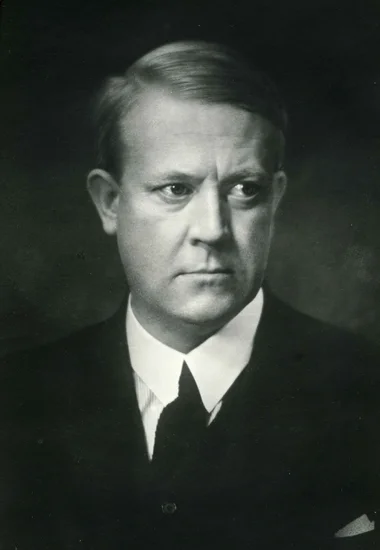
Vidkun Quisling and Johan Bernhard Hjort established Nasjonal Samling, Norway’s national-socialist party, in Oslo. This political organization would later collaborate with German occupation forces during World War II.
The party initially gained little popular support among Norwegian voters in democratic elections. However, Quisling’s collaboration with Nazi Germany during the war made his name synonymous with treason and betrayal.
1980 – Shining Path Begins Armed Struggle
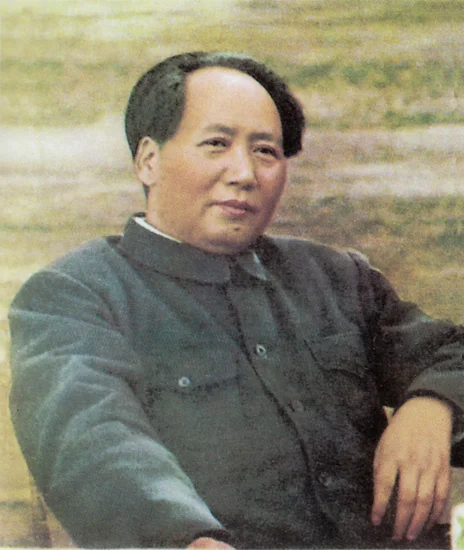
The Maoist guerrilla group Shining Path launched Peru’s internal conflict by attacking a polling station in Chuschi, Ayacucho. This violent action initiated two decades of brutal insurgency that would devastate Peruvian society.
The group’s radical ideology and extreme tactics terrorized rural communities throughout Peru’s highlands. The conflict would eventually claim over 69,000 lives and displace hundreds of thousands of indigenous Peruvians.
Business and Economic Events on May 17
1915 – Last Liberal Government Falls

The last British Liberal Party government led by H.H. Asquith collapsed, ending decades of Liberal political dominance. This transition marked a fundamental shift in British politics toward Conservative and Labour party control.
The government’s fall resulted from wartime pressures and internal party divisions over military strategy. The Liberal Party’s decline opened space for Labour to emerge as the primary opposition to Conservative governance.
1902 – Antikythera Mechanism Economic Impact
The discovery of the Antikythera mechanism demonstrated ancient Greek commercial and navigational sophistication that supported extensive Mediterranean trade networks. This technological achievement revealed the economic complexity of ancient civilizations.
The device’s astronomical calculations would have been invaluable for maritime commerce and agricultural planning. Its existence suggests that ancient economies operated with greater technological sophistication than previously understood.
1937 – Spanish Civil War Government Crisis
The Largo Caballero government resigned following the Barcelona May Days, leading to Juan Negrín’s formation of a new Republican government. This political transition occurred during the Spanish Civil War’s most critical phase.
The government change excluded anarcho-syndicalist CNT participation, reflecting internal Republican divisions. These political struggles weakened the Republic’s ability to coordinate effective resistance against Franco’s Nationalist forces.
Transportation and Infrastructure on May 17
2007 – Korean Train Border Crossing
Trains from North and South Korea crossed the 38th Parallel in a historic test run approved by both governments. This marked the first railway crossing of the Demilitarized Zone since the Korean War armistice in 1953.
The symbolic journey represented hopes for improved inter-Korean relations and eventual reunification. The rail connection promised economic benefits through enhanced trade and communication between the divided peninsula.
2006 – USS Oriskany Becomes Artificial Reef
The aircraft carrier USS Oriskany was deliberately sunk in the Gulf of Mexico to create the world’s largest artificial reef. The massive vessel now serves as a diving destination and marine habitat enhancement project.
The carrier’s transformation from warship to environmental asset demonstrates innovative approaches to naval vessel disposal. The artificial reef provides habitat for marine life while supporting recreational diving tourism in the region.
1953 – Delta Air Lines Flight 318 Crash

Delta Air Lines Flight 318 crashed near Marshall, Texas, killing all 19 people aboard the Douglas DC-3 aircraft. The tragic accident highlighted ongoing aviation safety challenges during the early jet age.
The crash prompted investigations into weather-related flight safety procedures and pilot training protocols. These safety improvements contributed to enhanced aviation standards that have made commercial flying increasingly safer.
Sports and Recreation on May 17
2000 – UEFA Cup Final Riots
Arsenal and Galatasaray fans clashed violently before the UEFA Cup Final in Copenhagen, resulting in widespread disorder and arrests. The riots highlighted growing concerns about football hooliganism at international matches.
The violence overshadowed the actual match and prompted UEFA to implement stricter security measures for future finals. The incident demonstrated the need for enhanced crowd control and fan behavior management at major sporting events.
1995 – Tank Rampage in San Diego

Shawn Nelson stole an M60 tank from a California Army National Guard Armory and conducted a destructive rampage through San Diego streets. The bizarre incident captivated national attention and raised questions about military facility security.
Nelson’s tank crushed numerous vehicles and damaged infrastructure before police managed to stop the armored vehicle. The incident highlighted vulnerabilities in military base security and prompted enhanced protective measures nationwide.
1985 – First Chuck E. Cheese Entertainment

The original Chuck E. Cheese’s Pizza Time Theatre represented a revolutionary approach to family entertainment and recreational dining. The concept combined traditional restaurant service with interactive arcade games and live entertainment shows.
This innovative entertainment model influenced countless family restaurants and entertainment centers across America. The franchise’s success demonstrated the commercial viability of interactive dining experiences targeting families with children.
Notable Births on May 17
1956 – Sugar Ray Leonard Born
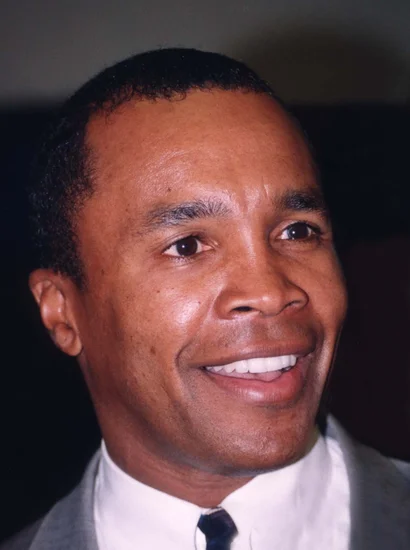
Sugar Ray Leonard entered the world in Wilmington, North Carolina, destined to become one of boxing’s greatest champions. His natural athletic ability and charismatic personality would make him a global sports icon.
Leonard’s professional career featured legendary battles against Roberto Durán, Thomas Hearns, and Marvin Hagler. His combination of speed, power, and showmanship helped elevate boxing’s popularity during the 1980s golden era.
1961 – Enya Born

Irish singer-songwriter Enya was born in Gweedore, County Donegal, Ireland, beginning a journey toward becoming one of the world’s most distinctive musical voices. Her ethereal soundscapes would captivate audiences globally.
Her unique fusion of Celtic traditions with modern production techniques created an entirely new musical genre. Enya’s albums have sold over 80 million copies worldwide, making her Ireland’s most successful solo artist.
1936 – Dennis Hopper Born
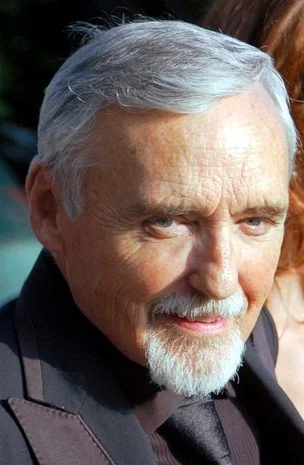
American actor and director Dennis Hopper was born in Dodge City, Kansas, launching a career that would define counterculture cinema. His rebellious spirit and intense performances challenged Hollywood conventions.
Hopper’s direction of “Easy Rider” revolutionized American filmmaking and established him as a New Hollywood pioneer. His complex personality and artistic vision influenced generations of actors and directors.
1955 – Bill Paxton Born

American actor Bill Paxton was born in Fort Worth, Texas, beginning a career that would span decades of memorable film and television performances. His versatility and natural charisma made him a beloved character actor.
Paxton’s roles in “Titanic,” “Aliens,” and “Apollo 13” demonstrated his ability to excel in both dramatic and action genres. His untimely death in 2017 left a significant void in Hollywood’s character actor community.
1970 – Jordan Knight Born

American singer Jordan Knight was born in Worcester, Massachusetts, destined to become a teen heartthrob as part of New Kids on the Block. The boy band phenomenon would define late 1980s pop music.
Knight’s distinctive falsetto voice became a signature sound for the group’s biggest hits. His success helped establish the template for manufactured boy bands that dominated pop music for decades.
1943 – Taj Mahal Born

American blues musician Taj Mahal was born Henry Saint Clair Fredericks in Harlem, New York, beginning a lifelong journey preserving and innovating blues traditions. His scholarly approach to music earned widespread respect.
Mahal’s extensive research into blues history and global musical traditions created a unique artistic voice. His educational efforts have introduced countless listeners to the rich heritage of American blues music.
1962 – Craig Ferguson Born

Scottish-American comedian Craig Ferguson was born in Johnstone, Scotland, beginning a career that would take him from Glasgow’s comedy clubs to American television stardom. His wit and intelligence set him apart.
Ferguson’s tenure as host of “The Late Late Show” showcased his improvisational skills and philosophical humor. His memoir and stand-up specials revealed depth beyond his television persona.
1971 – Queen Máxima Born

The future Queen Máxima of the Netherlands was born Máxima Zorreguieta in Buenos Aires, Argentina, beginning a remarkable journey from economics to royalty. Her multicultural background brought fresh perspectives to Dutch monarchy.
Her marriage to Crown Prince Willem-Alexander created initial controversy due to her father’s role in Argentina’s military dictatorship. However, her intelligence and dedication have made her a respected royal figure.
Notable Deaths on May 17
1987 – Gunnar Myrdal Dies
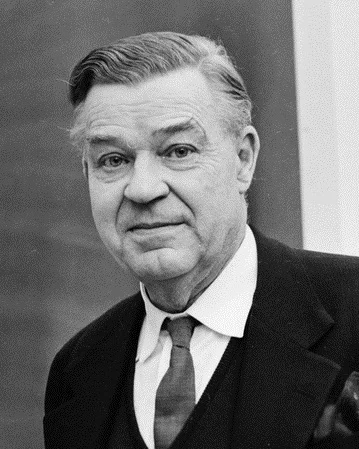
Swedish economist Gunnar Myrdal passed away at age 88, leaving behind a monumental legacy in social and economic theory. His groundbreaking work on race relations and development economics earned him the Nobel Prize in Economics.
Myrdal’s seminal work “An American Dilemma” exposed the contradictions between American ideals and racial discrimination. His scholarship influenced civil rights legislation and international development policies for decades.
1992 – Lawrence Welk Dies
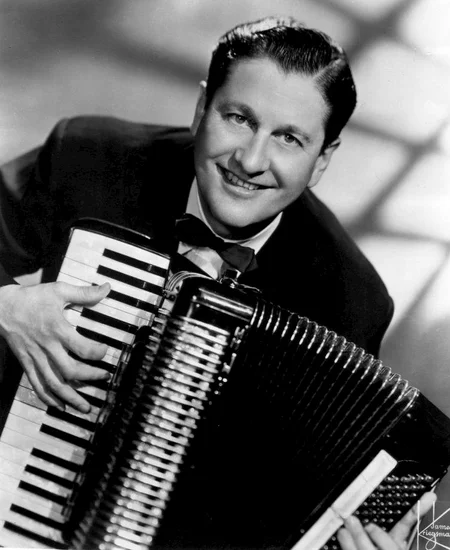
American bandleader Lawrence Welk died at age 89, ending a career that brought traditional music to millions of television viewers. His champagne music style defined wholesome entertainment for several generations.
Welk’s television show ran for 27 years, featuring polka, waltz, and popular standards performed by his musical family. His programs provided comfort and nostalgia during rapidly changing social times.
2004 – Tony Randall Dies

American actor Tony Randall passed away at age 84, concluding a distinguished career in theater, film, and television. His perfectionist Felix Unger character in “The Odd Couple” became a cultural icon.
Randall’s classical training and intellectual curiosity made him a respected advocate for arts education. His later work founding the National Actors Theatre demonstrated his commitment to serious dramatic performance.
2012 – Donna Summer Dies

Disco legend Donna Summer died at age 63, silencing one of popular music’s most powerful voices. Her innovative collaborations with producer Giorgio Moroder helped define the disco era’s sound and style.
Summer’s hits like “I Feel Love” and “Hot Stuff” showcased her incredible vocal range and emotional depth. Her influence extended beyond disco into dance music and electronic production techniques.
2014 – Gerald Edelman Dies

Nobel Prize-winning biologist Gerald Edelman passed away at age 84, leaving behind revolutionary contributions to immunology and neuroscience. His work on antibody structure earned him science’s highest honor.
Edelman’s later research into consciousness and neural development pushed the boundaries of brain science. His theories about neural Darwinism provided new frameworks for understanding how minds develop and function.
2019 – Herman Wouk Dies

American novelist Herman Wouk died at age 103, ending one of literature’s most prolific careers. His epic novels about World War II and Jewish-American experience captured the 20th century’s defining moments.
Wouk’s “The Caine Mutiny” and “The Winds of War” demonstrated his ability to combine historical accuracy with compelling storytelling. His work earned both critical acclaim and massive popular readership.
2024 – Bud Anderson Dies
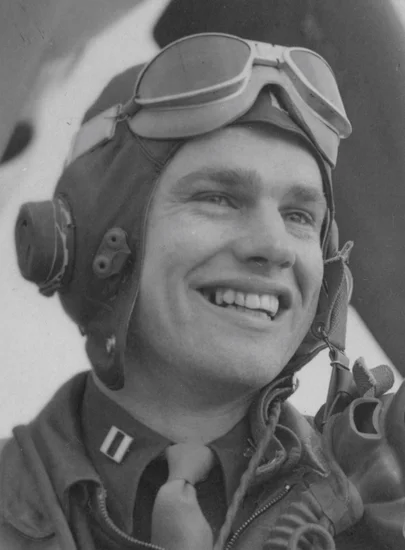
World War II flying ace Bud Anderson passed away at age 102, marking the end of an era in military aviation history. His aerial combat achievements made him one of America’s most decorated fighter pilots.
Anderson’s 16 aerial victories and leadership in the European theater exemplified the Greatest Generation’s courage. His post-war career as a test pilot continued his contributions to aviation development.
Holidays and Observances on May 17
Constitution Day (Norway)
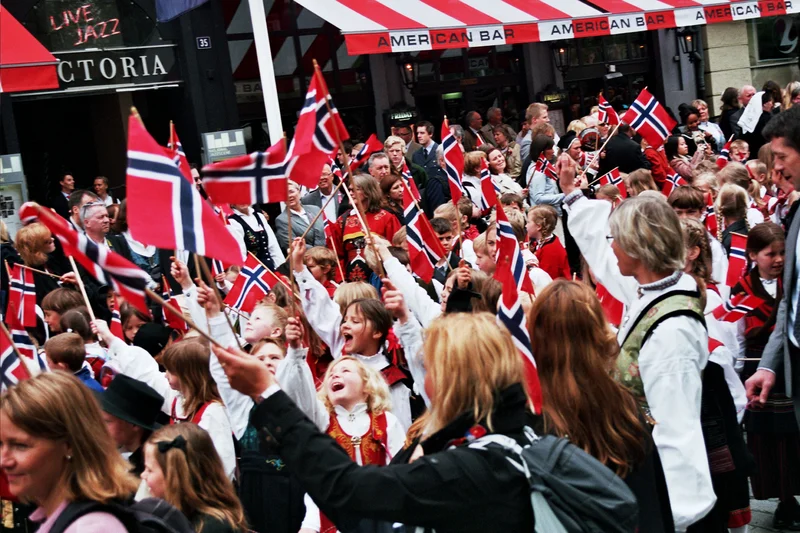
Norway celebrates its Constitution Day with nationwide festivities commemorating the signing of the Norwegian Constitution in 1814. The holiday represents Norway’s independence and democratic values through parades, traditional costumes, and cultural events.
Children’s processions through Oslo and other cities feature traditional bunad costumes and flag-waving ceremonies. The celebration emphasizes national unity and pride in Norwegian democratic institutions and cultural heritage.
International Day Against Homophobia, Biphobia and Transphobia
This global observance promotes awareness of discrimination faced by LGBTQ+ individuals worldwide. The date commemorates the World Health Organization’s decision to remove homosexuality from its list of mental disorders.
Educational events and advocacy campaigns highlight ongoing struggles for LGBTQ+ rights and equality. The observance encourages governments and organizations to implement anti-discrimination policies and promote inclusive societies.
World Telecommunication and Information Society Day
The United Nations recognizes this day to highlight the importance of information and communication technologies in global development. The observance promotes digital inclusion and technological advancement worldwide.
Events focus on bridging the digital divide and ensuring equitable access to telecommunications infrastructure. The day emphasizes technology’s role in achieving sustainable development goals and improving quality of life globally.
Liberation Day (Democratic Republic of the Congo)
The Democratic Republic of the Congo commemorates its liberation from Mobutu Sese Seko’s dictatorship on this date. The national holiday celebrates the end of decades of authoritarian rule and corruption.
Official ceremonies honor those who fought for democratic change and national sovereignty. The observance reflects hopes for continued progress toward good governance and economic development in Central Africa.
Navy Day (Argentina)
Argentina honors its naval forces and maritime heritage with ceremonies and public events. The day recognizes the navy’s role in national defense and Argentina’s extensive maritime territory.
Naval parades and ship exhibitions showcase Argentina’s maritime capabilities and traditions. The observance emphasizes the importance of naval forces in protecting national interests and maintaining regional stability.
